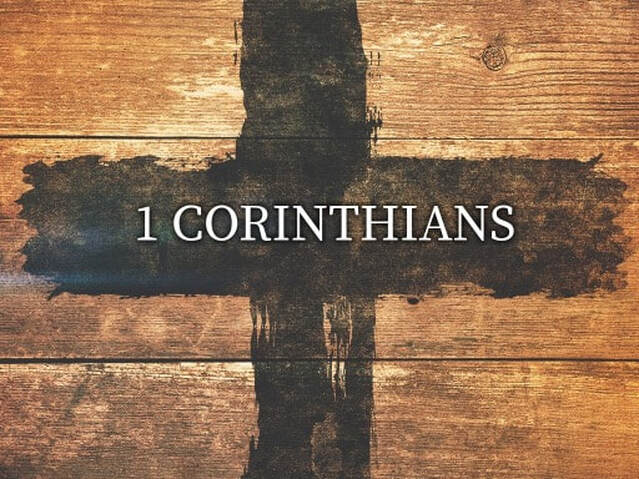Please remember that tonight we are coming together to read through 1 Corinthians 3-4. In this passage, Paul wraps up his argument against the leadership division within the congregation. Last week we looked at Paul’s proclamation that the unity of the church is in the Cross of Christ, not in clever teachings. In chapter 3, Paul continues that argument that the foundation of the church is Jesus Christ and that we, the church community, are the Temple that is built upon that foundation. We are the Temple where God’s Spirit dwells, and where the true worship of him occurs. Therefore, we should build up this Temple with beautiful permanent things, not base material which is easily destroyed. In concluding his argument in Chapter 4, Paul returns to the great New Testament theme of humility. If the foundation is truly in Christ, then that which is built upon it will be for his glory and not ours. For if we see ourselves as servants who have received all that we have from him alone, then there can be no room for pride of learning, and thereby no basis for our divisions. Paul holds himself and Apollos out as a working example of servants building up the Temple together and urges the Corinthians to do the same.
As an aside, 1 Corinthians 3:12-15 is used as the primary proof text by the Roman church for its doctrine of purgatory. Section 1031 of the Catechism of the Catholic Church provides that “The Church gives the name Purgatory to this final purification of the elect, which is entirely different from the punishment of the damned. . . . The tradition of the Church, by reference to certain texts of Scripture, speaks of a cleansing fire (Cf. 1 Cor. 3:15; 1 Pet 1:7). A commentary on this verse from the (Roman) Archdiocese of Washington is here. Also attached is Augustine’s commentary on this verse which speaks of a purgatorial fire (Handbook on Faith, Hope, and Love, Ch.68-69) as well as John Calvin’s refutation of such an interpretation (Institutes of the Christian Religion, 3.5.9).
As another aside, the Eastern Orthodox church has a long tradition of the Holy Fool based upon 1 Cor. 3:18 (Let no one deceive himself. If anyone among you thinks that he is wise in this age, let him become a fool that he may become wise.) The Holy Fool is one who acts intentionally foolish in the eyes of men. He or she often goes around half-naked, is homeless, speaks in riddles, is believed to be clairvoyant and a prophet, and may occasionally be disruptive and challenging to the point of seeming immoral. The Fool shows us to what lengths some may go to fully reject the wisdom of this world. St. Basil’s of Moscow (the huge onion dome in Red Square) is named after one such fool.
Dinner tonight is at 6. The menu is Philly cheesesteaks. Discussion around 6:45. Please bring a neighbor. Hope to see you here.
So if there is any encouragement in Christ, any comfort from love, any participation in the Spirit, any affection and sympathy, complete my joy by being of the same mind, having the same love, being in full accord and of one mind. Do nothing from selfish ambition or conceit, but in humility count others more significant than yourselves. Let each of you look not only to his own interests, but also to the interests of others. Have this mind among yourselves, which is yours in Christ Jesus, who, though he was in the form of God, did not count equality with God a thing to be grasped, but emptied himself, by taking the form of a servant, being born in the likeness of men. And being found in human form, he humbled himself by becoming obedient to the point of death, even death on a cross.
Philippians 2:1-9

